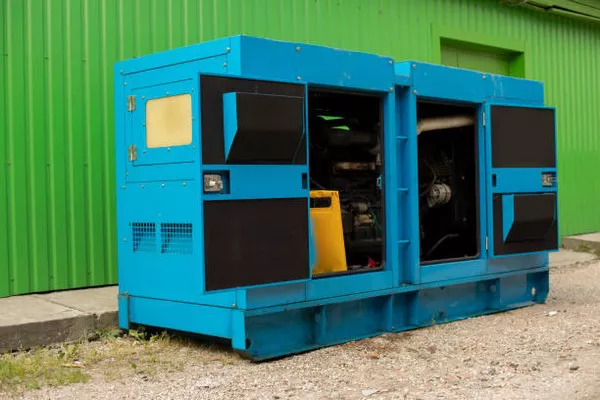Power outages can disrupt daily life, hinder business operations, and even pose safety risks. To mitigate these effects, many homeowners and businesses turn to backup generators. Generac is a leading manufacturer of residential and commercial generators, known for their reliability and efficiency. However, one crucial factor often considered before purchasing a generator is the noise it produces. This article delves into the specifics of noise levels in Generac generators, exploring how much noise they make, the factors influencing these levels, and how they compare to other brands in the market.
Understanding Generator Noise
Noise, measured in decibels (dB), is an important consideration for generators. The human ear perceives sounds starting from a whisper at around 30 dB to a rock concert at approximately 120 dB. The challenge with generators is to balance power output with acceptable noise levels to ensure they can be used in residential areas without causing significant disturbance.
Generac Generators: Noise Level Overview
Generac offers a wide range of generators, from portable models to large standby units. The noise levels of these generators vary based on their size, type, and features. On average, Generac generators produce noise levels between 60 dB and 70 dB at a distance of 23 feet (7 meters). To put this into perspective, 60 dB is comparable to a normal conversation, while 70 dB is similar to the sound of a vacuum cleaner.
Portable Generators: These units are designed for versatility and mobility, often used for camping, tailgating, or as a temporary power solution during outages. Portable Generac generators typically produce noise levels between 60 dB and 70 dB. For instance, the Generac iQ2000, a popular portable model, operates at around 60 dB, making it one of the quieter options in its category.
Standby Generators: These generators are permanently installed and automatically provide power during an outage. They are generally more powerful and, consequently, noisier than portable models. Generac standby generators usually emit between 65 dB and 70 dB. For example, the Generac Guardian Series 22 kW model operates at approximately 67 dB, making it quieter than many of its competitors.
Factors Influencing Noise Levels
Several factors influence the noise levels of Generac generators, including:
Engine Size and Type: Larger engines typically produce more noise. Generac’s advanced engine design and technology, such as the OHVI (Overhead Valve Industrial) engine, help mitigate some of this noise while delivering robust performance.
Load: Generators tend to be louder when operating under higher loads. Generac’s smart load management system helps optimize performance and reduce noise by distributing power efficiently.
Enclosures: The design and materials of the generator’s enclosure play a significant role in noise reduction. Generac utilizes sound-dampening materials and specially designed enclosures to minimize noise output.
Exhaust System: The quality and design of the exhaust system can affect noise levels. Generac incorporates advanced mufflers and other noise-reducing technologies to lower the sound produced by the exhaust.
Noise Comparison: Generac vs. Competitors
When evaluating the noise levels of Generac generators, it’s essential to compare them with other brands to understand their market position.
Honda: Known for its quiet operation, Honda generators, such as the EU2200i, operate at around 48 to 57 dB. While Honda models are quieter, they often come with a higher price tag and lower power output compared to Generac’s offerings.
Cummins: Cummins generators, particularly their standby models, operate at similar noise levels to Generac, typically around 65 dB to 70 dB. Both brands prioritize durability and performance, making them comparable in terms of noise.
Kohler: Kohler generators are another strong competitor in the standby generator market. Their models generally produce noise levels between 64 dB and 69 dB, closely aligning with Generac’s noise output.
Noise Mitigation Strategies
For those concerned about generator noise, several strategies can help reduce the impact:
Installation Location: Placing the generator further from living areas or using natural barriers like walls and landscaping can significantly reduce perceived noise levels.
Soundproof Enclosures: Investing in additional soundproofing enclosures can further dampen the noise. Generac offers advanced enclosures designed to minimize sound.
Regular Maintenance: Keeping the generator well-maintained ensures it operates efficiently and quietly. Regularly checking and servicing the engine, exhaust, and other components can help maintain optimal noise levels.
Vibration Pads: Installing anti-vibration pads can help reduce the noise generated by vibrations, making the operation smoother and quieter.
The Future of Quiet Power
Generac continues to innovate, focusing on reducing noise levels without compromising power and efficiency. Advances in engine technology, sound-dampening materials, and smart load management systems contribute to quieter operation. Additionally, the increasing demand for eco-friendly solutions drives Generac to explore renewable energy-powered generators, which tend to operate more quietly than traditional models.
See Also How Long Does a Hospital Generator Last?
Conclusion
Noise levels are a critical factor when choosing a generator, especially for residential use. Generac has made significant strides in producing generators that balance power output with acceptable noise levels. While not the quietest on the market, Generac generators offer a competitive mix of performance, reliability, and noise control. By understanding the noise levels of various models and implementing effective noise mitigation strategies, users can enjoy the benefits of reliable power with minimal disruption. As technology advances, the future promises even quieter and more efficient generators, ensuring that the sound of power is as unobtrusive as possible.

